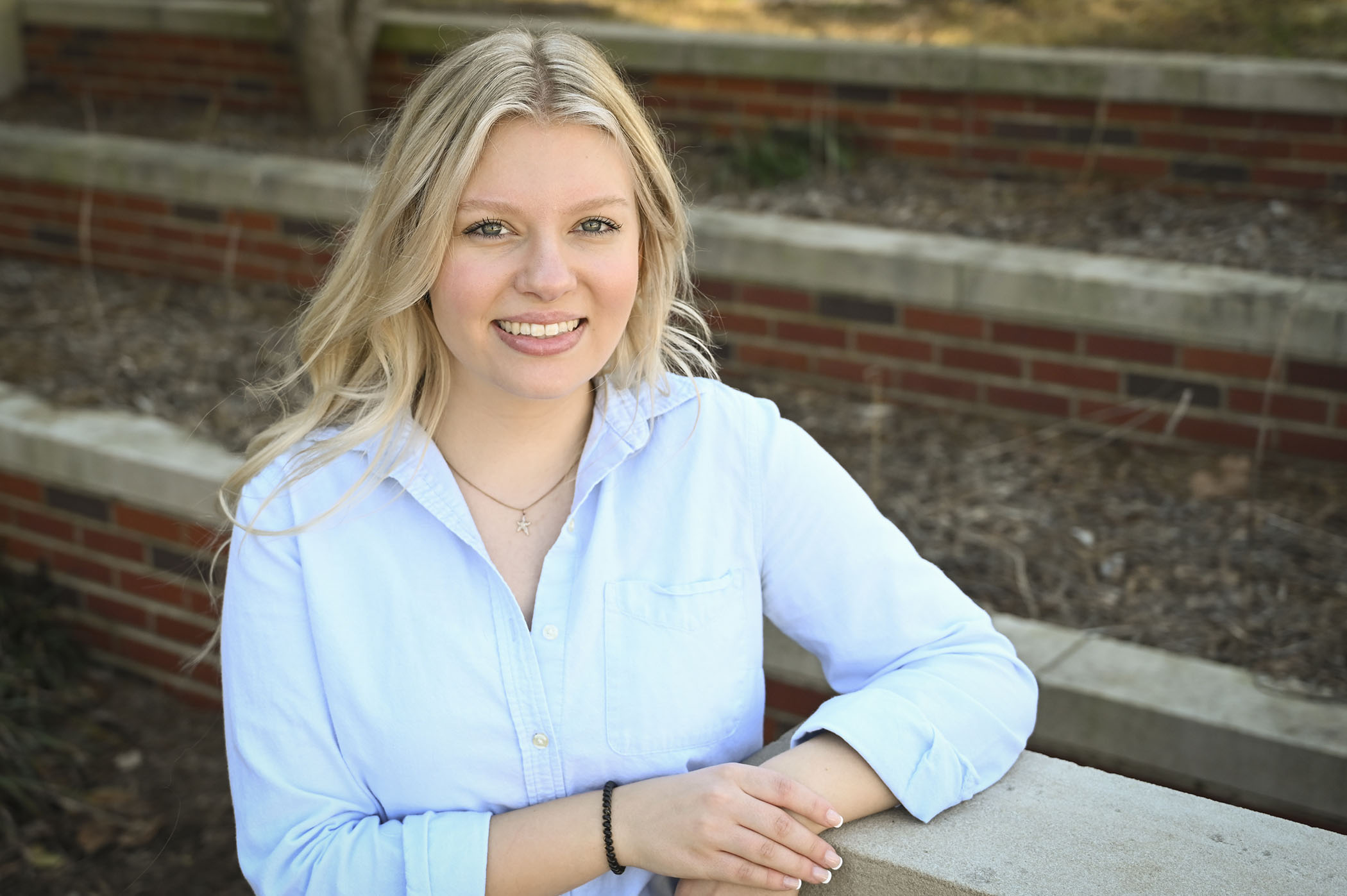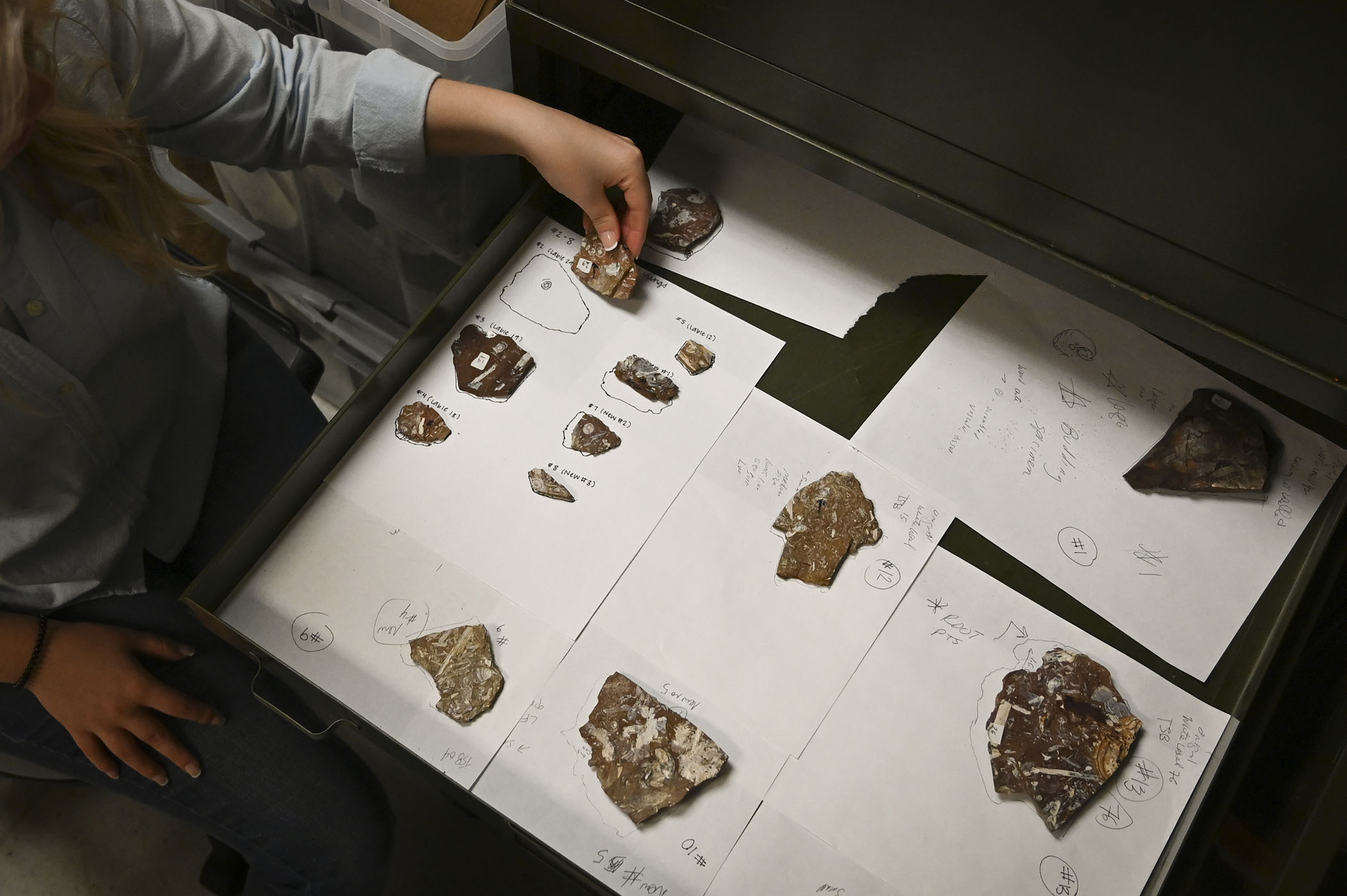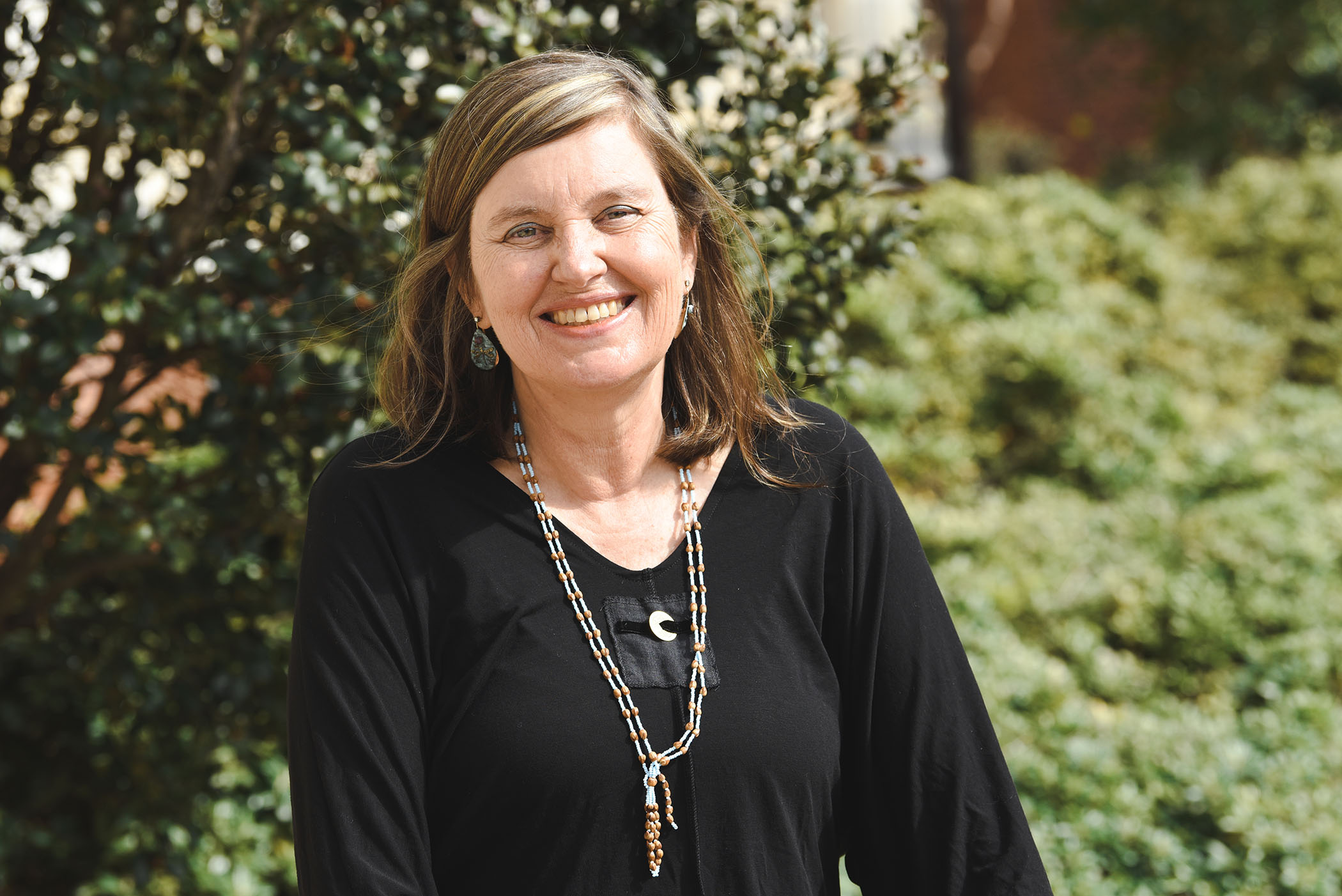Meaningful mentorships guide more women into STEM
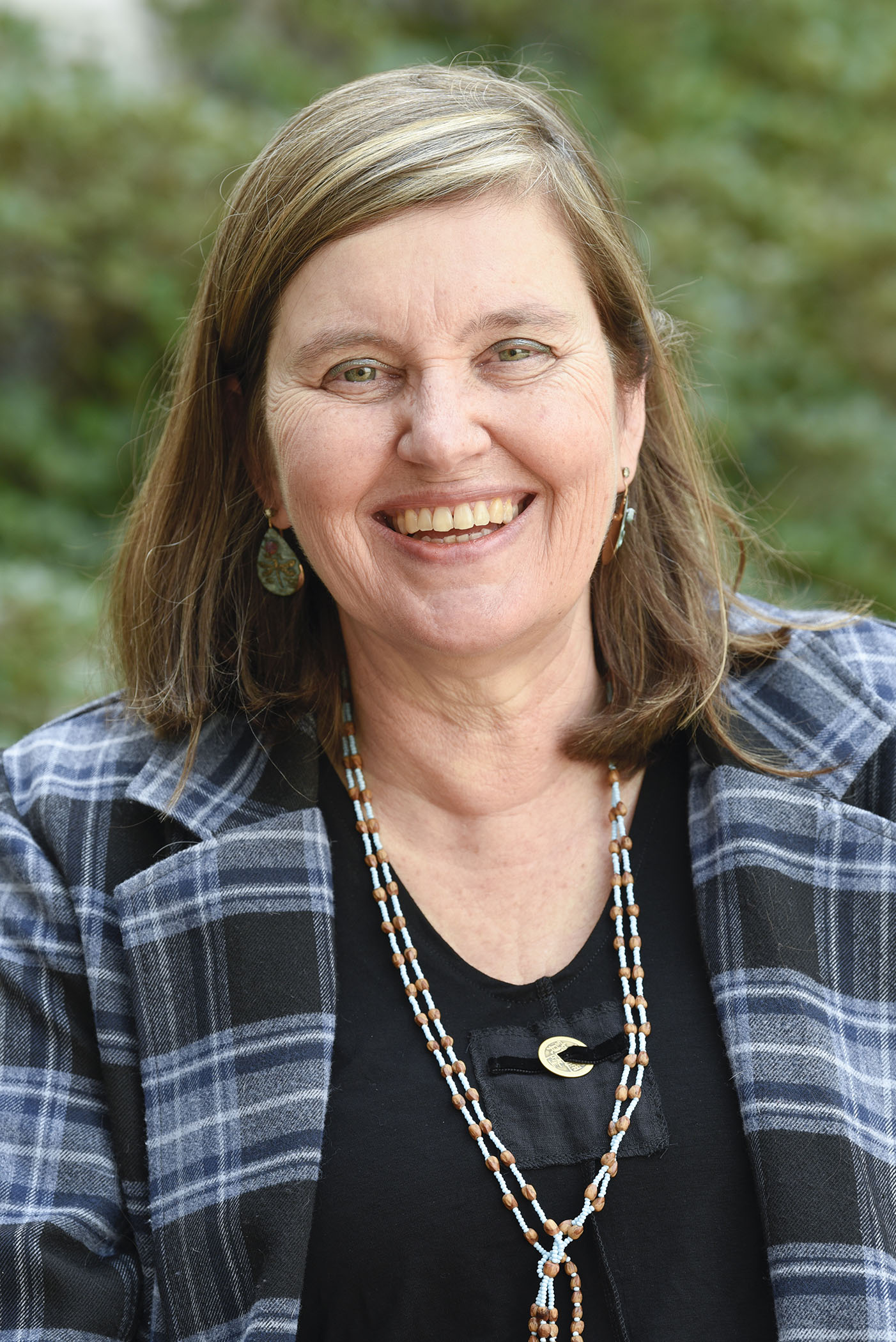
by Margaret Schell
I n a field once dominated by men, Dr. Melanie DeVore, professor and paleobotanist at Georgia College & State University, noticed biology has taken a turn. More women are pursuing their degrees in science thanks to mentors like her. DeVore sees science as the ultimate team sport where collaboration is key to solving problems.
“We are building bridges,” DeVore said. “There are practical, real-life connections within academia.”
DeVore makes a point to place students within her strong, collaborative network of peers just as her mentors did when DeVore was a student. She learned the power of networking during her undergraduate years at the University of Wisconsin–Oshkosh.
“I had incredible mentors in the Geology Department where faculty taught me how to navigate ways to stand up for myself,” she said. “There were many successful folks, programs and other things that came out of that program. Since then, there has been an increase in women in the geological sciences.”
DeVore learned a great deal about navigating her career from her mentor Dr. Neil Harriman, a former professor at UW-Oshkosh. Harriman told DeVore about Dr. Vicki Funk at Ohio State University, who became established at the Smithsonian in the Department of Botany. Harriman also put Beryl Simpson’s “Economic Botany” textbook on DeVore’s desk and told her to read it as an example of an “outstanding textbook.”
Simpson was chair of the Department of Botany at University of Texas at Austin, mentoring DeVore while DeVore was a graduate student there. DeVore went on Ohio State University and later took a graduate fellowship with Funk at the Smithsonian.
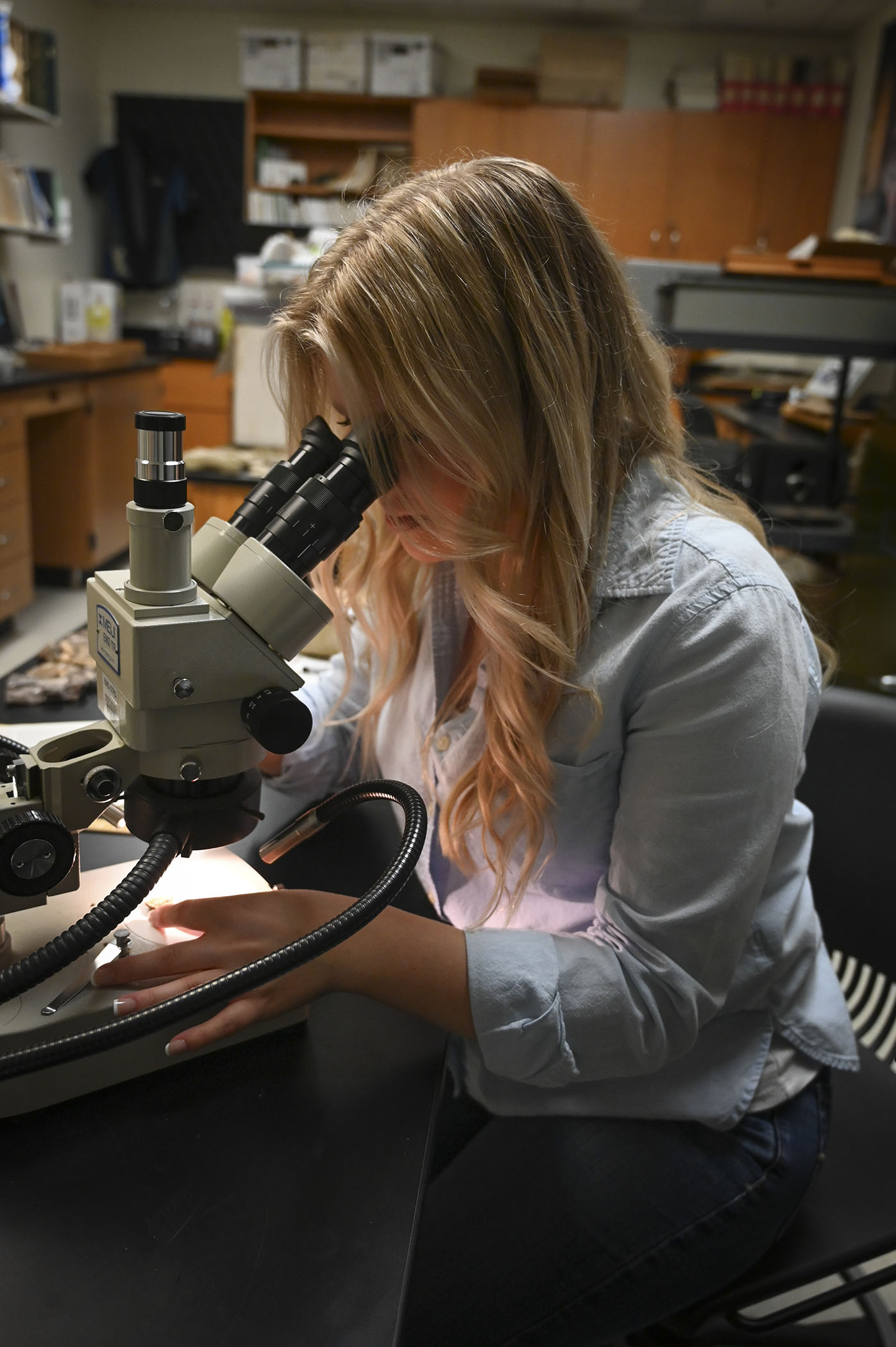
“I’ve been incredibly blessed to work with people whose pictures I saw in my college textbooks,” she said. “I got to do things and go places in the world because of fossil plants. I want the same for my students.”
DeVore emulates her mentors in teaching students from the Department of Biological and Environmental Sciences, one of whom was M. Witt Taylor (’01) (’03). Taylor collaborated with DeVore on paleobotanical side projects and Dr. Al Mead, professor of Biological and Environmental Sciences at Georgia College, on his thesis research on fossil mammals. Taylor’s dissertation work was based on his study of fossil plants with a National Science Foundation grant secured by Georgia College and Arizona State University. His work is featured on the front cover of the International Journal of Plant Sciences: Vol 184, No 4.
Another one of DeVore’s students who recently studied fossils with support from an NSF research grant, Laura Griffin (’24) got her degree in environmental science and will get her master’s in biology this spring. She went to Arizona State University to work in DeVore’s cohort’s laboratory. Griffin also worked alongside ASU graduate students.
“This kind of interaction is invaluable for undergraduate students,” DeVore said. “They see firsthand what the reality and expectations are for graduate school.”
Griffin’s thesis research involves fossils found in a plant stem. She plans to become an environmental scientist, working in a manufacturing or processing company with a focus on state and federal environmental laws.
“Whether it’s asking questions or voicing my opinion, I learned to never be afraid to speak up,” Griffin said. “Dr. DeVore has been a strong advocate for me to take advantage of the opportunities my master’s degree has to offer. I also gained valuable techniques to give me the upper hand when applying for jobs.”
DeVore is an Honorary Research Fellow in the Center of Excellence in Biodiversity & Natural Resource Management at the University of Rwanda for a portion of February and May each year. She collaborates with Rwandan students to study vegetation and botany as it relates to biodiversity and gorilla conservation in the area. Her work in Rwanda is made possible by the Fossey Fund and Cleveland Metropark Zoos.
“It's incredible to collaborate with Rwandan students,” DeVore said. “I share the conservation methods I learn from them to Georgia College students in my GC1Y class. We’ve even conducted Zoom talks in the University of Rwanda Fossey Research Gallery.”
Now, DeVore will do educational outreach, working on fossils with local students at Stonerose Interpretive Center and Eocene Fossil Site in Republic, Washington. On behalf of Georgia College, DeVore submitted an NSF proposal in December 2024 with the Smithsonian, University of California, Davis, Arizona State University and Northern Arizona University.
“We work with our researcher on fossils from that site,” she said. “It’s the perfect model for integrating science in public schools and for all to be on an equal playing field, so you establish this natural integration and friendships. Someday I hope these students fill the shoes of the people who keep nonprofits like Stonerose going.”
Header Images: Dr. Melanie DeVore advocates for mentorship from herself and her peers for students like Laura Griffin. (Photos: Anna Gay Leavitt)
